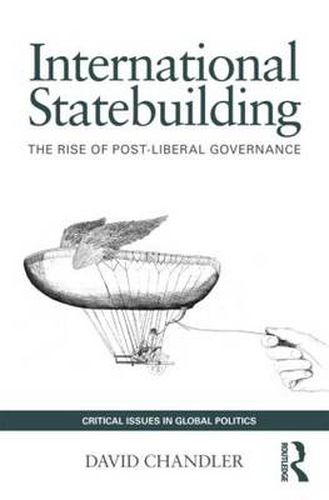Readings Newsletter
Become a Readings Member to make your shopping experience even easier.
Sign in or sign up for free!
You’re not far away from qualifying for FREE standard shipping within Australia
You’ve qualified for FREE standard shipping within Australia
The cart is loading…






This book covers the theoretical frameworks and practices of international state-building, the debates they have triggered, and the way that international state-building has developed in the post-Cold War era. Divided in four parts, David Chandler Examines the changing international context in the 1990s and 2000s, in which the non-Western state was problematised in terms of both its security and development capacities, with debates around the need for external economic conditionality and more direct forms of humanitarian intervention, it then analyses how the terms of debate shifted to state capacity-building in the 2000s Traces discussion and policy-making in three issues – security, development, and democracy and human rights – which have necessitated a rethinking of the state’s relation to international institutions. Considers some of the approaches deployed, including post-conflict state-building, frameworks to prevent state failure and EU enlargement practices. Opens up the framework and introduces a more critical analysis, concluding with a discussion of the implications of the internationalised state both in terms of international theory and policy practices.
$9.00 standard shipping within Australia
FREE standard shipping within Australia for orders over $100.00
Express & International shipping calculated at checkout
This book covers the theoretical frameworks and practices of international state-building, the debates they have triggered, and the way that international state-building has developed in the post-Cold War era. Divided in four parts, David Chandler Examines the changing international context in the 1990s and 2000s, in which the non-Western state was problematised in terms of both its security and development capacities, with debates around the need for external economic conditionality and more direct forms of humanitarian intervention, it then analyses how the terms of debate shifted to state capacity-building in the 2000s Traces discussion and policy-making in three issues – security, development, and democracy and human rights – which have necessitated a rethinking of the state’s relation to international institutions. Considers some of the approaches deployed, including post-conflict state-building, frameworks to prevent state failure and EU enlargement practices. Opens up the framework and introduces a more critical analysis, concluding with a discussion of the implications of the internationalised state both in terms of international theory and policy practices.